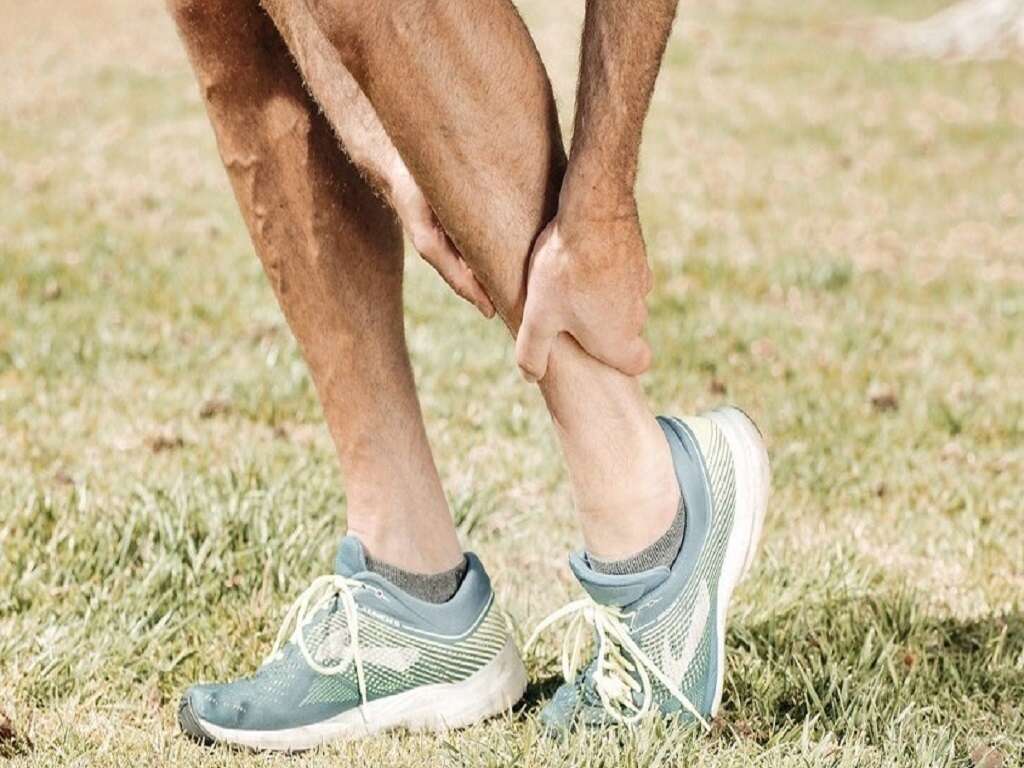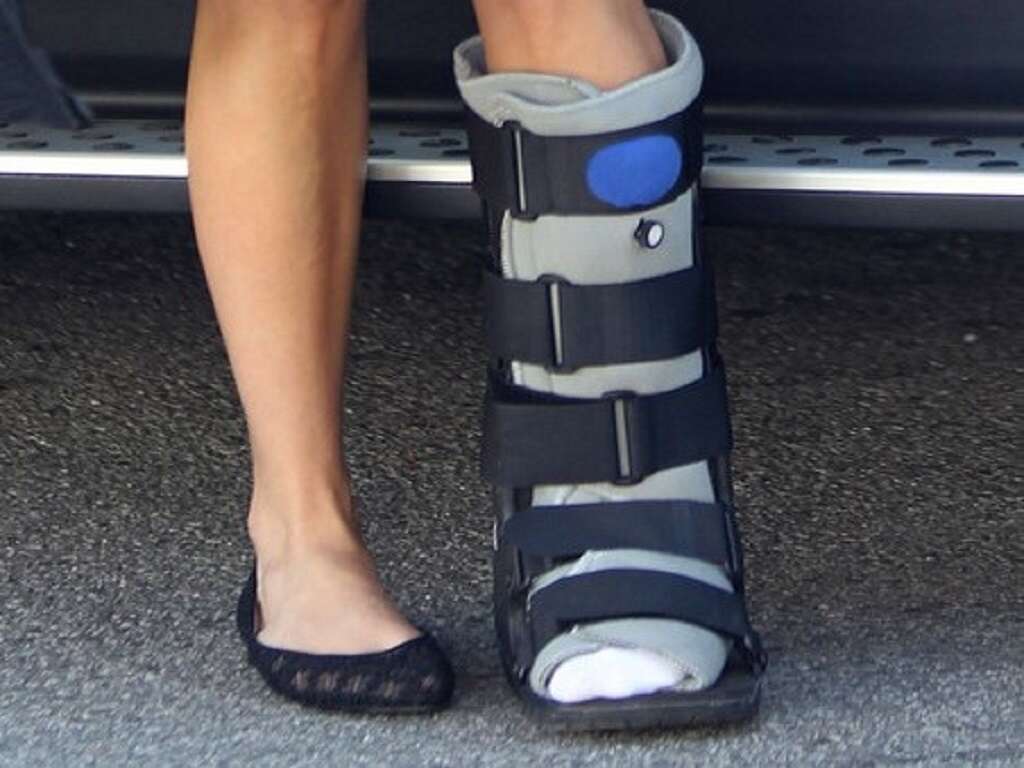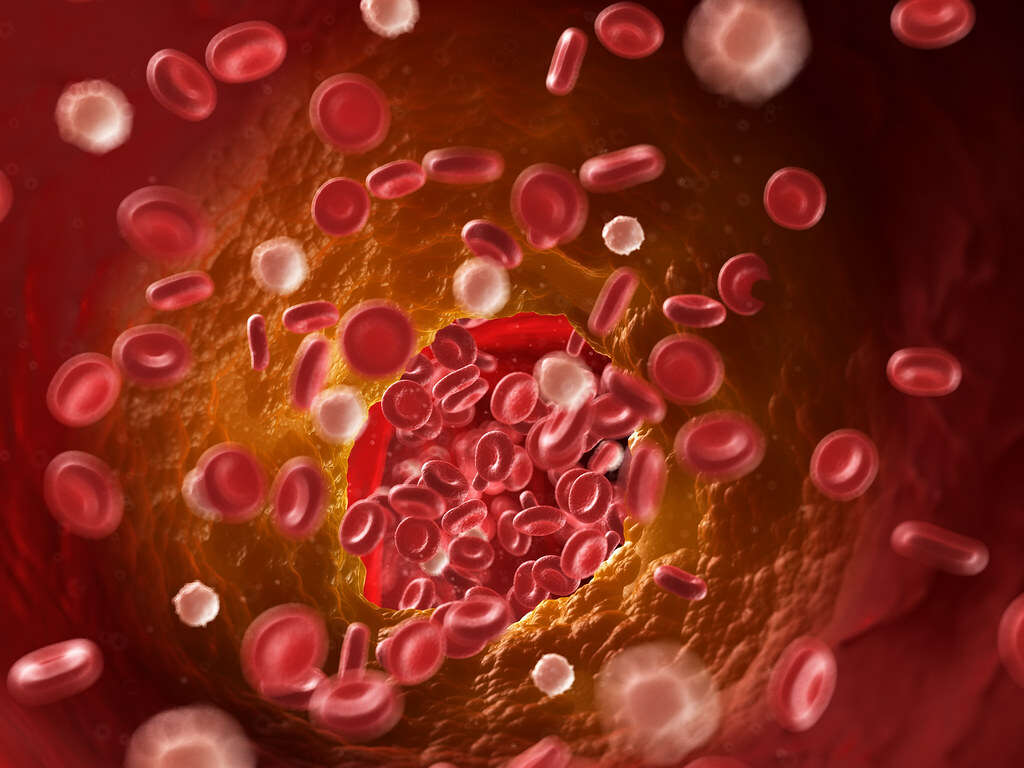Shin Pain Causes, Treatments & More
 Article Sources
Article Sources
- 1. 'Shin Splints - OrthoInfo - AAOS.' OrthoInfo, orthoinfo.aaos.org/en/diseases--conditions/shin-splints
- 2. 'Stress Fractures: Causes, Symptoms, Tests & Treatment.' Cleveland Clinic, my.clevelandclinic.org/health/diseases/15841-stress-fractures
- 3. 'Compartment Syndrome - OrthoInfo - AAOS.' OrthoInfo, orthoinfo.aaos.org/en/diseases--conditions/compartment-syndrome
Pain in the shin is a common leg injury. The majority of shin pain is caused by shin splints, an aching inflammation of muscle and bone well-known to runners and military recruits. Other conditions that involve shin pain are stress fractures and compartment syndrome. Stress fractures are microscopic bone cracks from repeated impact. Compartment syndrome is an adverse body reaction to the swelling of muscles and nerves during exercise.
The main root of shin pain, whether fracture, swelling or inflammation, is from overuse. As a result, shin pain generally responds well to management with rest and therapy.

The Shin: An Overview
The shin is the front of the lower leg. It's made up of two bones known as the tibia and fibula. The tibia is the biggest of these and one of the strongest bones in the body. Despite this, the shin is prone to pain and aches. Discomfort in this area is a common form of leg injury.
One reason for this is that the shin is filled with sensitive nerves, blood vessels and muscle attachments. Another reason is the amount of stress the region is forced to absorb from impact activities and walking afterward.

Shin Splints
Shin splints are a common form of shin pain. It usually appears as a dull, burning ache and typically affects the bottom third of the shin bone, mainly on the inside.1‘Shin Splints - OrthoInfo - AAOS.’ OrthoInfo, orthoinfo.aaos.org/en/diseases–conditions/shin-splints
It's thought to be caused when excess stress aggravates the surface of the tibia bone and all the muscles connected to it. This surface, called the periosteum, becomes raw and sore as a response. People who are engaged in high-impact activities are more prone to shin splints.

How Shin Pain Can Develop
Cases of shin pain commonly start as mild discomfort the day after exercise. The shin may also hurt to touch. Unhealed, it can progress to an unrelenting pain that occurs even when resting and force someone to take time off exercise.
At first, people may find that shin pain eases after warming up, allowing pain-free activity, only to return when cooled off after exercise. It's essential at this stage to address the underlying factors before it progresses.

Cause: Overdoing It
Probably the biggest factor that can cause shin pain is someone exercising too much, too soon. This can be any activity that involves the foot making contact with the ground, such as jogging, dancing or jumping. Shin splints are very common in military recruits who, while physically fit, start doing lots of leaping and marching in footwear they're not used to.
While muscle soreness is normal when increasing activity, it's vital to recognize excessive shin pain as a potential warning sign.

Cause: Tight Shin Muscles
Frequent hard exercise causes muscles in the shin and elsewhere to shorten. When a muscle is shorter, it's less flexible. This means it's less able to absorb shock compared to one that's supple and elastic. This is important given the amount of force transmitted up through the shin.
While it's advised to stretch muscles after activity, stretching the shin area specifically is sometimes overlooked. As well as increasing the ability of the leg to withstand impact, stretching encourages healing blood flow.

Cause: Incorrect Foot Wear
Each time a person's foot contacts the ground, the body weight is transferred up the leg. This is multiplied even more when jumping or jogging. As a result, wearing old shoes or the wrong shoes is a common contributing factor to shin pain.
Adequate cushioning is vital and so is the correct type of shoe. Each person's foot strikes the ground in a different way. The right trainers support specific areas, such as the arch, heel or forefoot.

Managing Immediate Inflammation Pain
The first step to managing shin pain is to address the burning inflammation. The ache can be effectively managed with icing and anti-inflammatory medication. When icing the area, apply ice to the aching area for up to ten minutes, several times a day if needed.
It's particularly important to do this right after exercise. Acting fast to reduce inflammation aids the healing process. If the discomfort remains even with icing, then medication, such as ibuprofen, may help.

Importance of Rest
After managing the pain symptoms, it's important to let the area heal. It can be tempting to jump straight back into exercise once the pain has reduced, but shin pain can easily return without adequate rest.
Allow at least several days before performing any activity involving impact. Persistent cases may require a change in exercise regime to no-impact activities for a period of time. During this time, focus on stretching the area, if pain-free, and addressing whether the footwear worn is suitable.

Stress Fractures
Most cases of shin pain are from shin splints. However, sometimes the cause is a stress fracture. These are tiny cracks, usually in the tibia bone, due to constant, repetitive force. The pain usually gets worse during exercise. It can also happen suddenly, unlike shin splints.2‘Stress Fractures: Causes, Symptoms, Tests & Treatment.’ Cleveland Clinic, my.clevelandclinic.org/health/diseases/15841-stress-fractures
Shin stress fractures can be difficult to identify as they share several symptoms with shin splints, and due to bone involvement, they usually require an x-ray to diagnose. Once identified, managing the condition is similar to shin splints.

Compartment Syndrome
Compartment syndrome occurs when muscles, nerves and blood vessels swell during exercise. Covering these is a thin yet strong layer of tissue called a fascia. This fascia doesn't stretch easily, and as shin muscles expand, the fascia resists. The resulting pressure leads to compartment syndrome.3‘Compartment Syndrome - OrthoInfo - AAOS.’ OrthoInfo, orthoinfo.aaos.org/en/diseases–conditions/compartment-syndrome
The symptoms are similar to shin splints, but people may also experience numbness and even a loss of feeling. Like stress fractures, compartment syndrome requires a more detailed investigation to diagnose.











